SUMMARY
This is AI generated summarization, which may have errors. For context, always refer to the full article.
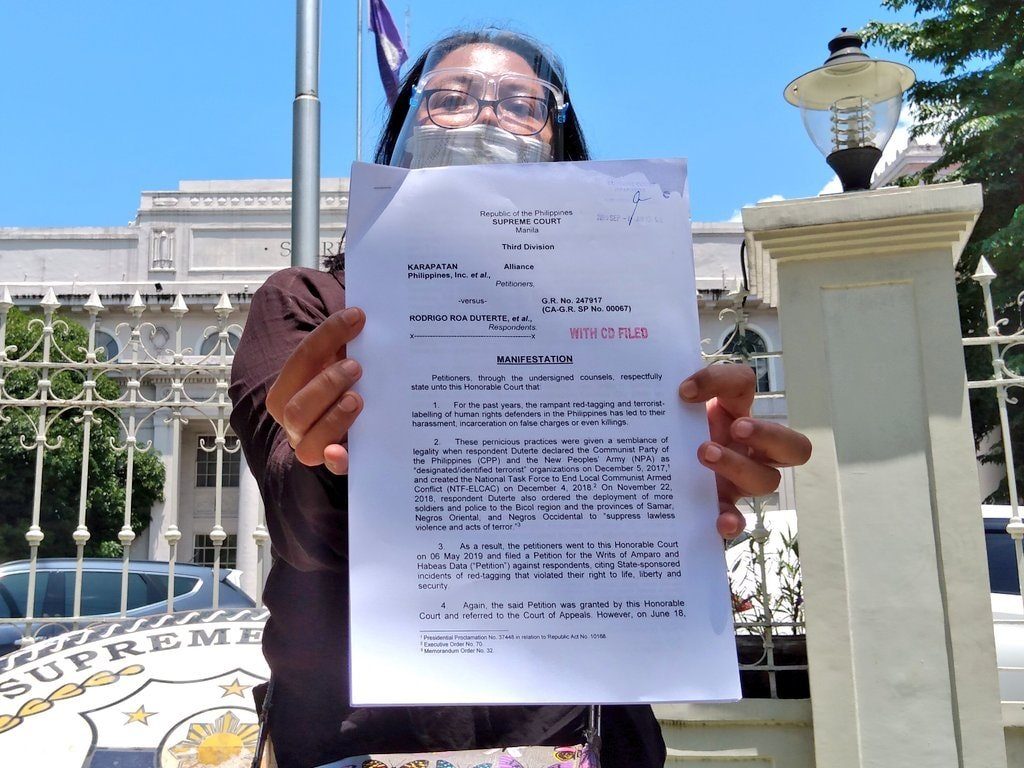
“I fear that it may happen again or I might be killed,” were the last words of slain activist Zara Alvarez to the Court of Appeals (CA) before it denied a petition for a protection order for red-tagged activists in June 2019.
Following the court denial, their lawyers filed an appeal through a petition for review on certiorari before the Supreme Court, which was pending before the Third Division when Alvarez was gunned down on August 17.
Rights group Karapatan said in a manifestation submitted to the Supreme Court on Tuesday, September 1, that while “it is too late now” for member Alvarez, a protection order can still save the lives of other human rights defenders and activists facing the same threat.
On Tuesday, Karapatan, assisted by the National Union of People’s Lawyers (NUPL), made a plea for the living and asked the High Court to reverse the earlier CA ruling, and grant them the protective privileges of the writs of amparo and habeas data.
“Zara’s death proves that being subjected to red-tagging and terrorist-labeling constitutes an actual threat, and not merely one of supposition or with the likelihood of happening,” Karapatan said.
Karapatan said that after Alvarez’s death on August 17, other activists received threatening messages that they would be next: Clarizza Singson, Karapatan Negros secretary general; John Milton Lozande, National Federation of Sugar Workers (NFSW) secretary general; Rey Alburo, Karapatan-Negros spokesperson; Felipe Gelle of the September 21 Movement in Negros; and NSFW chairperson Rolando Rilo.
“Petitioners urge the Honorable Court to reexamine its understanding of red-tagging and terrorist-labeling and finally see the same as threats to the people’s right to life, liberty, and security,” the manifestation said.
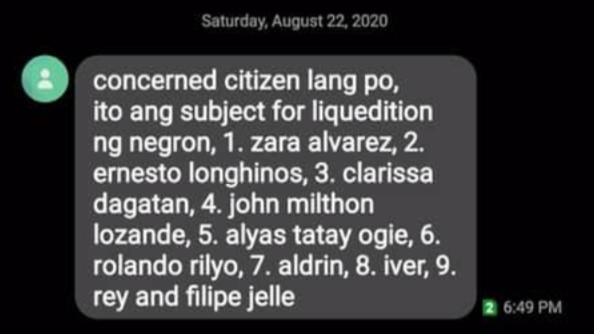
Weakened writs
Alvarez was supposed to testify before the CA on how she had been red-tagged and threatened for years, backed up by messages and posters that vilified her.
Alvarez was among the 649 people that the Department of Justice (DOJ) had wanted to tag as terrorists in a proscription case filed before a Manila court in February 2018. The DOJ and the court had since trimmed down that list to only two, but Alvarez was set to testify that the threats continued after she was delisted. (PODCAST: Law of Duterte Land: A State of terror)
Because of a procedural misunderstanding at the CA, Alvarez was not able to take the witness stand and the NUPL just settled with submitting her affidavit to the court.
On June 28, 2019, the CA denied the petitions for amparo and habeas data on the findings that red-tagging by the state and the threats experienced by activists are purely circumstantial.
“There was no evidence that the alleged killings and disappearances are on account of the victims’ membership in organizations tagged as legal fronts,” the CA in its ruling then.
In a recent webinar, former Supreme Court spokesperson Ted Te noted that “the writ of amparo has really been weakened,” (PODCAST: Law of Duterte Land: Are extraordinary writs still effective in the time of Duterte?)
Te said this is rooted in the 2015 Zarate vs Aquino case where the Supreme Court denied activists the privileges of the writs of amparo (protection of fundamental constitutional rights) and habeas data (the right to rectify erroneous personal information), ruling that their inclusion in military intelligence lists “has no direct relation to the circumstances (they) experienced.”
‘Too palpable to ignore’
In the manifestation, Karapatan pleaded with the Supreme Court to review its rulings.
“The causality between Alvarez’s inclusion in the rogues gallery of communist terrorists and her dastardly killing is too palpable to ignore,” said Karapatan.
“Nevertheless, [we] continue to hope that the protection [Alvarez] was never given be extended to [us] – especially at a time when the promotion and defense of human rights is susceptible to being wrongfully interpreted, suppressed and punished by the State as terrorism,” the group added.
In a statement on Tuesday, Karapatan secretary general Kristina Palabay noted the dire consequences of the delayed court action on their petition.
“Zara has been ruthlessly killed while waiting for the decision on our petition which has languished in courts for more than a year already. The delays are literally killing us,” she said.
“What more proof do they need that these attacks are threats to our lives, security and liberty?… We cannot allow this murderous crackdown to continue,” Palabay added. – Rappler.com
Add a comment
How does this make you feel?
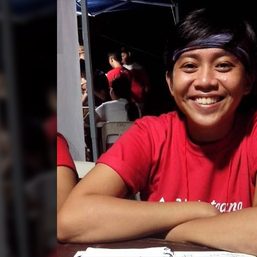

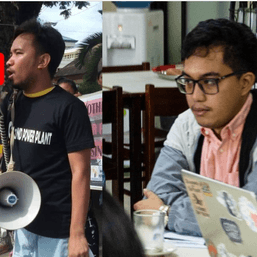
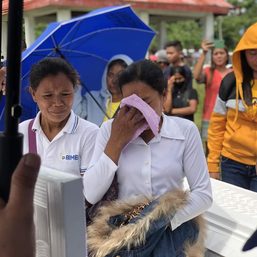
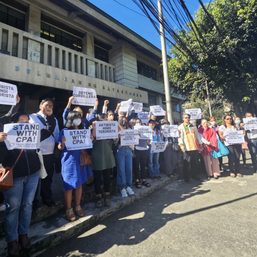
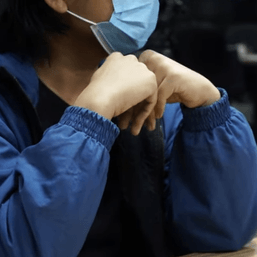



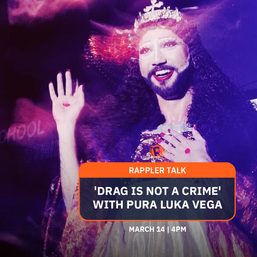





There are no comments yet. Add your comment to start the conversation.